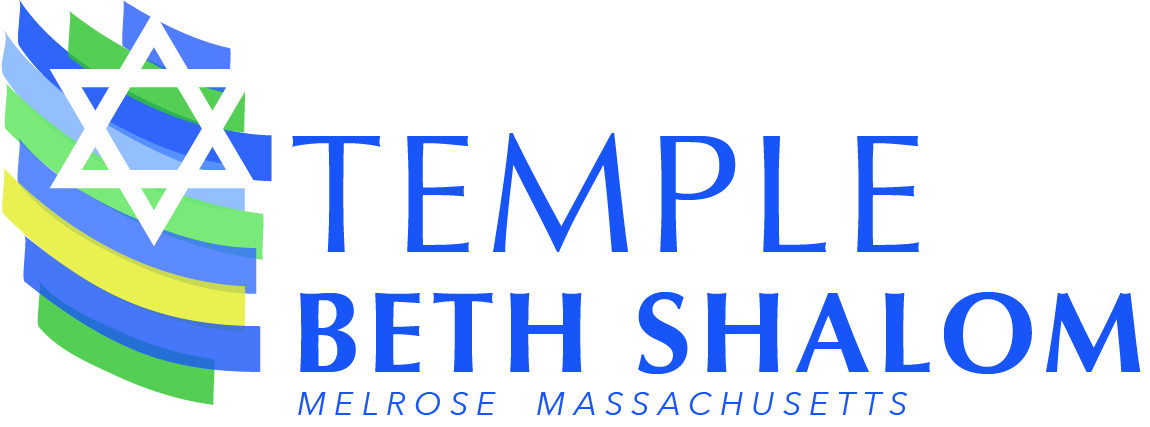By Rabbi Jessica Lowenthal
Rosh Hashanah is a time of new beginnings, a theme we’ll be talking about over the next several days. It gives us time to celebrate, yes, but also to reflect upon our past year. Upon consideration, we often realize we need to do some teshuva- some repentance. We have 10 days between Rosh Hashanah and Yom Kippur to seek out those we have hurt. We are responsible for mending our mistakes here on earth, and only then will our prayers on Yom Kippur be heard.
When we think of teshuva, we think of saying I am sorry, asking forgiveness from our friends and family, finding ways to right the wrongs we have committed. It can feel very negative- I have done this thing, I have done that thing, and I must repent! If Yom Kippur was the only holiday during this time, we might think that was the entire point- to focus only on the negative.
But we don’t only have Yom Kippur- we have the High Holidays- starting with the joyous new year! Why, you might ask, do these two holidays come as a package? Because Judaism tells us that the secret to a good life is balance. Just as the difficulty of Yom Kippur is balanced out by Rosh Hashanah, the negative parts of teshuva must be balanced out by the positives.
- Rabbi Jessica’s trip to Israel
- Yom HaShoah Service
- Congregational Reading: Maus
- Unpacking Anti-Semitism
- D’var – January 8, 2021
So what is positive teshuva- positive repentance? It looks strikingly similar to a resolution- in our case, a New Year’s resolution.
After all, what are new years resolutions but the process of saying, I wish I had done something last year, and I am resolving to do it this year. I want to do better. We must look back and think not only about our actions that have harmed others, but our inactions as well. Each person must think, perhaps my inaction has harmed people, including myself. Perhaps my inaction has contributed to harming our society or our planet. I need to do teshuva and stand up!
I have had a very busy couple of years. As if Rabbinical school wasn’t enough, I decided to have two children, twenty months apart. Just as we started sleeping through the night, Max was born and we were reminded just how intense sleep deprivation can be!
During the same time, and still today, the world around us is a challenge to navigate. There are serious issues we are finally being forced to contend with: a global climate crisis, the intense polarization of American politics, the increase in white supremacy and bigotry. These issues used to seem far away, a problem for the future, for someone else. We were able to say, that doesn’t happen in our community, that doesn’t affect my life right now, I need to focus on my immediate needs. Someone else will take care of it, eventually. But those issues have come crashing into our lives. These problems are real, and they affect us every day, whether we choose to see it or not.
And yet, it is still possible to recede, to acknowledge that, yes, there are serious problems, but what can I do about it? I’m just one person, the problems are too big.
I admit, I have felt that way. I have said, oh, it’s so great that there is a climate strike, or a women’s march, or an anti-white nationalist protest, but I’m so tired. And would my presence really make a difference? I’ll like the facebook event, comment on my friends pages that it is really great they are showing up, and I’ll take a nap. And let’s be honest- I wasn’t showing up all the time before I had children either.
But I cannot get the saying of Rabbi Tarfon out of my head. In Pirkei Avot, the ethics of our fathers, he says that “You are not obligated to complete the work, but neither are you free to desist from it”
We also learn that Hillel used to say, “If I am not for myself, who will be for me. If I am only for myself, who am I? If not now, when?”
Life is hard, and sometimes we really do need to prioritize ourselves and our sanity, and our sleep. But at some point, we need to get up, and get out.
I am ready to do teshuva for my inaction, for all the times I was able to show up for something important and chose not too.
I resolve to stand up for causes I believe in, not just from behind the facebook screen, but in person. I resolve to show up, even if it is inconvenient, to demonstrate to others that they are not alone. I resolve to speak up when I hear someone say something derogatory, even if it is uncomfortable. I resolve to believe that I, and you, and every individual in our world, can make an impact, even when it feels like the problems are too big.
Because we can– each of us can make a difference. We can make a difference to the people we interact with, to the communities we take part in. And believe it or not, we can make a difference in the wider world. If every person stood up for their values, spoke up when others couldn’t, together we would change this world- we would repair it.
This Rosh Hashanah, begin the process of teshuva, but do not sink into negativity; our world does not need more of it. Rather, believe in the incredible power we have to make change, if we keep improving ourselves, keep pushing ourselves, and keep showing up. Rosh Hashanah is a time of new beginnings. So let’s begin.
